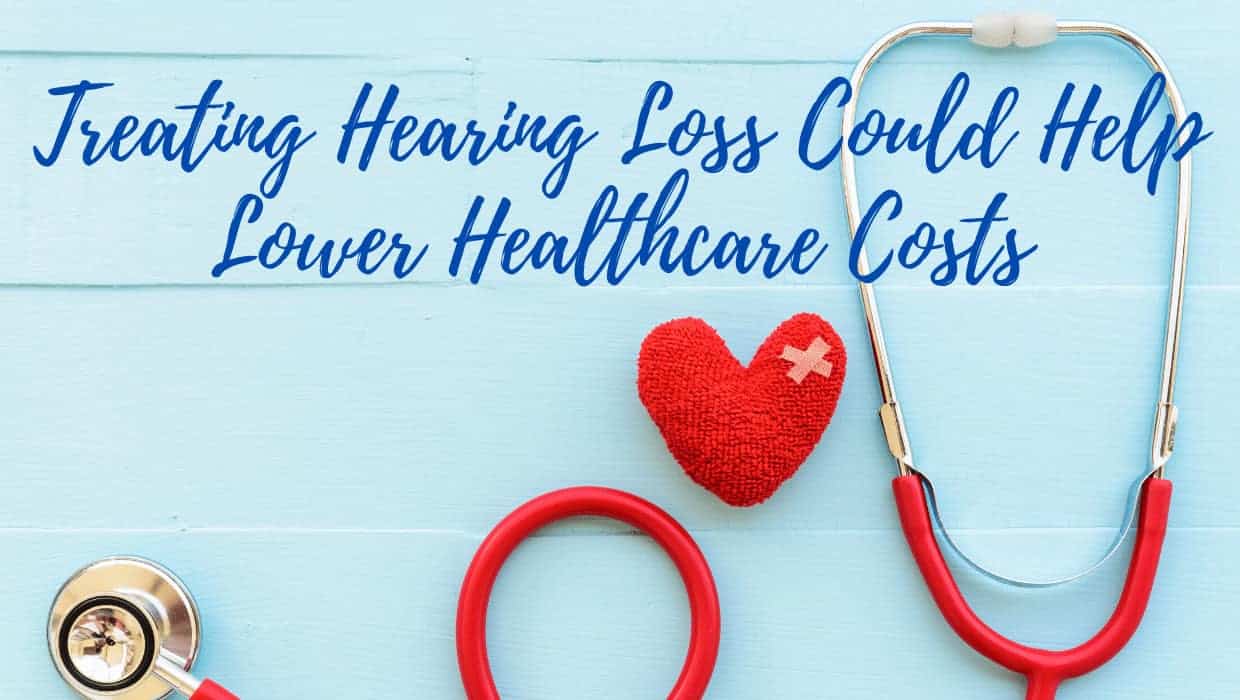There’s very little getting around it. Until most healthcare insurance providers and Medicare begin covering more hearing healthcare costs – hearing aids remain a financial investment. Hearing devices are an investment into meaningful conversations, human connection, work productivity, relationships, cognitive health, physical health and overall quality of life. All of these aspects of life can be significantly improved when one decides to treat their hearing loss with hearing aids.
But did you know that hearing aids can actually save you money too?
A study out of Johns Hopkins Bloomberg School of Public Health recently reported that people with untreated hearing loss experienced significantly higher overall healthcare costs over the course of a decade than their peers without hearing loss.
About the Study
The Johns Hopkins Bloomberg School of Public Health collaborated with the University of California San Francisco, AARP and OptumLabs to complete their research. The longitudinal study identified about 77,000 people with age related hearing loss by using diagnosis codes. Patients with age related hearing loss were excluded from the research if they were also diagnosed with a secondary medical condition.
The researchers then used the database to match each of these patients with other patients in the database. More than 25 factors were considered in matching the patients, including: baseline health conditions, demographic characteristics, and measures of health care utilization.
Once matched, the researchers analyzed health care usage and costs at two, five, and ten-year marks.
The results were quite stunning. By the end of the ten-year mark, those patients with untreated hearing loss incurred about $22,434 more in health care costs per individual than those without hearing loss.
Researchers also noted that those with untreated hearing loss had about 50% more hospital stays, were 17% more likely to visit the emergency room, had about 52% more visits to outpatient appointments, and had a 44% higher risk for hospital readmission within 30 days (https://www.sciencedaily.com/releases/2018/11/181108142334.htm).
Why the Correlation?
While this research paper did not fully investigate the reason that people with untreated hearing loss experienced such higher healthcare costs than their counterparts without hearing loss – the authors do have some ideas. Namely, the fact that hearing loss is correlated with so many other serious issues.
Studies have found that people with untreated hearing loss are at a higher risk of:
- Cognitive decline such as Alzheimer’s disease
- High blood pressure
- Diabetes
- Depression and social isolation
- Falls that cause serious injury
- Lower self-esteem
- And more…
Follow-up and companion studies have found that treating hearing loss with hearing aids can have a mitigating effect on many of these other serious health conditions.
An investment in your hearing health now, can save you on other health care costs later
Hearing loss is extremely prevalent, affecting about 48 million Americans. Although hearing loss can affect anyone at any age, its prevalence increases as we grow older. In fact, it is estimated that about 1 in 5 American teenagers has some degree of hearing loss, progressing to 1 in 2 people over the age of 75.
Although hearing loss is extremely common, it is typically untreated. Sadly, most people wait about 7 years from the time they notice changes in their hearing to the time they seek treatment from a hearing professional. Moreover, it is estimated that only about 1 in 5 people who could benefit from the use of hearing aids, actually choose to use them.
Have you noticed changes in your hearing?
Because hearing loss is so gradual, it is often difficult for individuals to identify. This is why it is so imperative for people age 60 and older to get a hearing assessment every year. On top of this, it is also important to stay akin to common signs of hearing loss, such as:
- Tinnitus – a phantom ringing or buzzing in one or both of the ears
- Feeling as though others are mumbling, like you can “hear” what they say but just cannot understand them
- Complaints from family members about the volume on the TV or music
- Complaints from friends and family that you are not listening to them
- More difficulty hearing the voices of women and/or children than the voices of men
Hearing Wellness Solutions
The friendly team at Hearing Wellness Solutions is here to help you. If you have noticed changes in your hearing or are simply curious about your hearing health, reach out to us today. We look forward to hearing from you.


